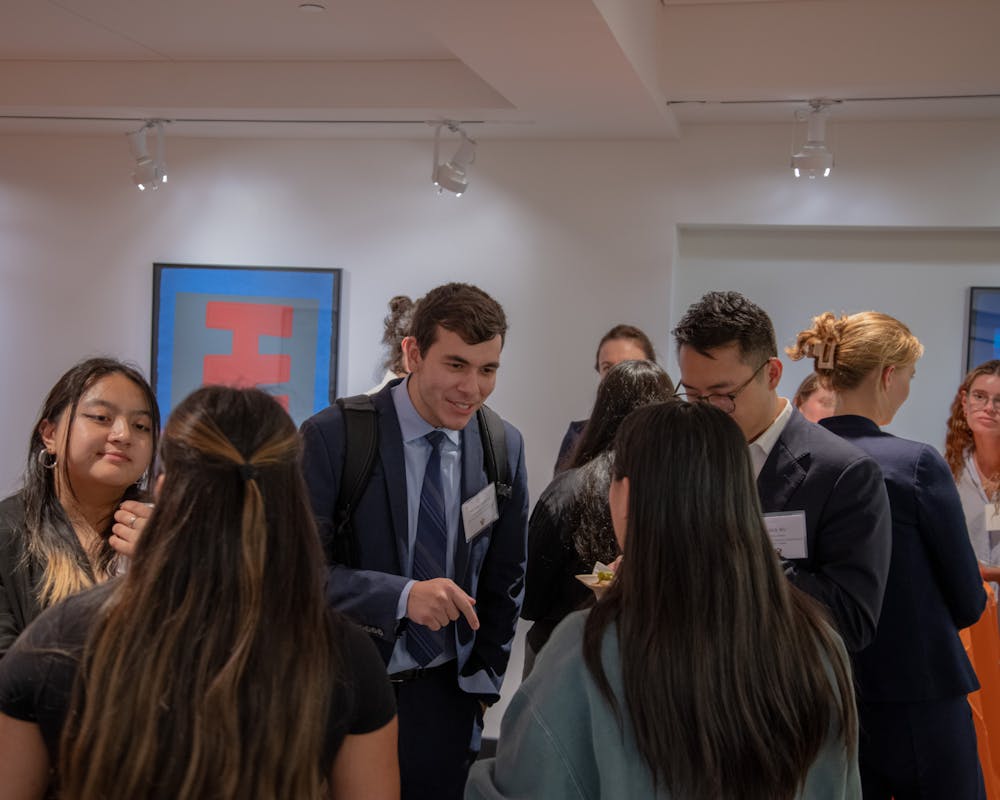For many international students, it is an all-too-familiar experience — they’re searching for jobs online, they filter for opportunities willing to sponsor visas, and the expansive list before them vanishes.
Sponsorship for international students often presents employers with legal and financial burdens, leading them to prefer domestic students. The unique constraints, students say, changes the conversation about what careers students should go into when it comes to international students.
Gil Joseph ’25, a sociology major from Haiti, told The Daily Princetonian he has thought of applying to internships at certain companies and potentially working there after graduation, but has been dissuaded given that “there’s always one question that they ask: if you think that you might, now or in the future, need to apply for work visa sponsorship.”
“Some internships allow you to intern with them, but then they tell you upfront that the chances of you coming back and working full-time are very limited,” Joseph said.
Dimitar Chakarov ’24, a math major from Bulgaria, shared similar concerns in an interview with the ‘Prince,’ saying that hesitance to sponsor students sometimes leads companies to “reject your application the moment you submit it.”
“It’s a difficult problem because there’s a lot of constraints that you need to be thinking about. And it just makes it not unmanageable, but stressful,” Chakarov added.
Chakarov is a former associate Print Design editor at the ‘Prince.’
The Center for Career Development at Princeton is a campus resource that helps students find jobs and internships. In a statement to the ‘Prince,’ Executive Director Kimberly Betz said that advisers can help in finding companies that sponsor students.

Joseph told the ‘Prince’ that he has gone to the Career Center but that these difficulties go beyond Princeton — “it’s the U.S. government that imposes those restrictions,” he said.
These restrictions also do not end once students secure jobs. Many foreign workers are sponsored by the their employers for H-1B visas, which provide them with legal status until they can gain permanent residency, which can take years.
For foreign workers, being laid-off not only presents financial hardship but also threatens their ability to stay in the country. This issue has been particularly pertinent recently, given that the rise in tech layoffs in recent months left international tech workers scrambling to find another job within 60 days to retain their visa status.
These visas are also in short supply — in 2022, there were 85,000 available while applications for visas from employers were over five times higher, according to The New York Times. H-1B visas are expensive, given that there are fees associated with their renewal. According to the Times, employers must spend up to $20,000 to sponsor foreign workers.

Joseph says that he has used Handshake, a website with job and internship listings available to all Princeton students, to search for opportunities and has noticed that when he filters for postings that are willing to sponsor international students, “the list decreases dramatically.”
“And they are heavily concentrated in certain industries like consulting, finance, and tech. So the options for international students are quite limited in that regard,” he added.
Tech and consulting companies are, on average, best at sponsoring international students, leading students in certain academic fields to be further shut out of the job market. Joseph told the ‘Prince’ that students who are uninterested in those fields “have the disadvantage.”
“I think Princeton is still very friendly to consulting, finance, and tech,” he said, adding that, “When we’re being critical of those industries, which I think is a very important conversation, we should know why is it that this amount of students go into those industries post-graduation.”
Joseph thinks that keeping international students at Princeton informed of what kinds of jobs their academic programs would suit them for would be beneficial.
“I just think it would be good to create an environment where international students know what options are available to them, and they can make an informed decision as to whether or not they want to stay in the U.S. after graduation or whether or not they want to go home or go somewhere else,” Joseph said.
He added that for some, going back home is not a sustainable option, given political turmoil or lack of opportunities for professional development.
He said that it is important for career advising to inform students that post-graduation plans are “limited by the residential status, so that they can make informed decisions about what they decide to do here.”
Claire Meng is a News contributor for the ‘Prince.’
Michelle Miao is a News contributor and Newsletter staffer for the ‘Prince.’
Sandeep Mangat is a head news editor at the ‘Prince.’
Please send any corrections to corrections[at]dailyprincetonian.com.








